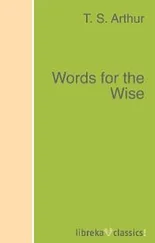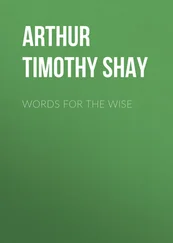Timothy Arthur - All's for the Best
Здесь есть возможность читать онлайн «Timothy Arthur - All's for the Best» — ознакомительный отрывок электронной книги совершенно бесплатно, а после прочтения отрывка купить полную версию. В некоторых случаях можно слушать аудио, скачать через торрент в формате fb2 и присутствует краткое содержание. Издательство: Иностранный паблик, Жанр: foreign_sf, literature_19, foreign_antique, foreign_prose, на английском языке. Описание произведения, (предисловие) а так же отзывы посетителей доступны на портале библиотеки ЛибКат.
- Название:All's for the Best
- Автор:
- Издательство:Иностранный паблик
- Жанр:
- Год:неизвестен
- ISBN:нет данных
- Рейтинг книги:4 / 5. Голосов: 1
-
Избранное:Добавить в избранное
- Отзывы:
-
Ваша оценка:
- 80
- 1
- 2
- 3
- 4
- 5
All's for the Best: краткое содержание, описание и аннотация
Предлагаем к чтению аннотацию, описание, краткое содержание или предисловие (зависит от того, что написал сам автор книги «All's for the Best»). Если вы не нашли необходимую информацию о книге — напишите в комментариях, мы постараемся отыскать её.
All's for the Best — читать онлайн ознакомительный отрывок
Ниже представлен текст книги, разбитый по страницам. Система сохранения места последней прочитанной страницы, позволяет с удобством читать онлайн бесплатно книгу «All's for the Best», без необходимости каждый раз заново искать на чём Вы остановились. Поставьте закладку, и сможете в любой момент перейти на страницу, на которой закончили чтение.
Интервал:
Закладка:
On the next Sunday I saw Mr. Gray in church. My eyes were on him when he entered. I noticed that all the lines of his face were drawn down, and that the whole aspect and bearing of the man were solemn and devotional. He moved to his place with a slow step, his eyes cast to the floor. On taking his seat, he leaned his head on the pew in front of him, and continued for nearly a minute in prayer. During the services I heard his voice in the singing; and through the sermon, he maintained the most fixed attention. It was communion Sabbath; and he remained, after the congregation was dismissed, to join in the holiest act of worship.
"Can this man be indeed self-deceived?" I asked myself, as I walked homeward. "Can he really believe that heaven is to be gained by pious acts alone? That every Sabbath evening he can pitch his tent a day's march nearer heaven, though all the week he have failed in the commonest offices of neighborly love?"
It so happened, that I had many opportunities for observing Mr. Gray, who, after joining the church, became an active worker in some of the public and prominent charities of the day. He contributed liberally in many cases, and gave a good deal of time to the prosecution of benevolent enterprises, in which men of some position were concerned. But, when I saw him dispute with a poor gardener who had laid the sods in his yard, about fifty cents, take sixpence off of a weary strawberry woman, or chaffer with his boot-black over an extra shilling, I could not think that it was genuine love for his fellow-men that prompted his ostentatious charities.
In no instance did I find any better estimation of him in business circles; for his religion did not chasten the ardor of his selfish love of advantage in trade; nor make him more generous, nor more inclined to help or befriend the weak and the needy. Twice I saw his action in the case of unhappy debtors, who had not been successful in business. In each case, his claim was among the smallest; but he said more unkind things, and was the hardest to satisfy, of any man among the creditors. He assumed dishonest intention at the outset, and made that a plea for the most rigid exaction; covering his own hard selfishness with offensive cant about mercantile honor, Christian integrity, and religious observance of business contracts. He was the only man among all the creditors, who made his church membership a prominent thing—few of them were even church-goers—and the only man who did not readily make concessions to the poor, down-trodden debtors.
"Is he a Christian?" I asked, as I walked home in some depression of spirits, from the last of these meetings. And I could but answer No—for to be a Christian is to be Christ-like.
"As ye would that men should do to you, do ye even so to them." This is the divine standard. "Ye must be born again," leaves to us no latitude of interpretation. There must be a death of the old, natural, selfish loves, and a new birth of spiritual affections. As a man feels, so will he act. If the affections that rule his heart be divine affections, he will be a lover of others, and a seeker of their good. He will not be a hard, harsh, exacting man in natural things, but kind, forbearing, thoughtful of others, and yielding. In all his dealings with men, his actions will be governed by the heavenly laws of justice and judgment. He will regard the good of his neighbor equally with his own. It is in the world where Christian graces reveal themselves, if they exist at all. Religion is not a mere Sunday affair, but the regulator of a man's conduct among his fellow-men. Unless it does this, it is a false religion, and he who depends upon it for the enjoyment of heavenly felicities in the next life, will find himself in miserable error. Heaven cannot be earned by mere acts of piety, for heaven is the complement of all divine affections in the human soul; and a man must come into these—must be born into them—while on earth, or he can never find an eternal home among the angels of God. Heaven is not gained by doing, but by living.
III
"RICH AND RARE WERE THE GEMS SHE WORE."
" HAVE you noticed Miss Harvey's diamonds?" said a friend, directing my attention, as she spoke, to a young lady who stood at the lower end of the room. I looked towards Miss Harvey, and as I did so, my eyes received the sparkle of her gems.
"Brilliant as dew-drops in the morning sunbeams," I remarked.
"Only less brilliant," was my friend's response to this. "Only less brilliant. Nothing holds the sunlight in its bosom so perfectly as a drop of dew.—Next, the diamond. I am told that the pin, now flashing back the light, as it rises and falls with the swell and subsidence of her bosom, cost just one thousand dollars. The public, you know, are very apt to find out the money-value of fine jewelry."
"Miss Harvey is beautiful," said I, "and could afford to depend less on the foreign aid of ornament."
"If she had dazzled us with that splendid pin alone," returned my friend, "we might never have been tempted to look beneath the jewel, far down into the wearer's heart. But, diamond earrings, and a diamond bracelet, added—we know their value to be just twelve hundred dollars; the public is specially inquisitive—suggest some weakness or perversion of feeling, and we become eagle-eyed. But for the blaze of light with which Miss Harvey has surrounded herself, I, for one, should not have been led to observe her closely. There is no object in nature which has not its own peculiar signification; which does not correspond to some quality, affection, or attribute of the mind. This is true of gems; and it is but natural, that we should look for those qualities in the wearer of them to which the gems correspond."
I admitted the proposition, and my friend went on.
"Gold is the most precious of all metals, and it must, therefore, correspond to the most precious attribute, or quality of the mind. What is that attribute?—and what is that quality?"
"Love," said I, after a pause, "Love is the most precious attribute of the mind—goodness the highest quality."
"Then, it is no mere fancy to say that gold corresponds to love, or goodness. It is pure, and ductile, and warm in color, like love; while silver is harder, and white and shining, like truth. Gold and silver in nature are, then, as goodness and truth in the human soul. In one we find the riches of this world, in the other divine riches. And if gold and silver correspond to precious things of the mind, so must brilliant jewels. The diamond! How wonderful is its affection for light—taking in the rays eagerly, dissolving them, and sending them forth again to gladden the eyes in rich prismatic beauty! And to what mental quality must the diamond correspond? As it loves the sun's rays, in which are heat and light—must it not correspond to the affection of things good and true?—heat being of love, and light of truth or wisdom? The wearer of diamonds, then, should have in her heart the heavenly affection to which they correspond. She should be loving and wise."
"It will not do to make an estimate in this way," said I. "The measure is too exacting."
"I will admit that. But we cannot help thinking of the quality when we look upon its sign. With a beautiful face, when first seen, do we not always associate a beautiful soul? And when a lady adorns herself with the most beautiful and costly things in nature, how can we help looking, to see whether they correspond to things in her mind! For one, I cannot; and so, almost involuntarily, I keep turning my eyes upon Miss Harvey, and looking for signs of her quality."
"And how do you read the lady?" I inquired.
My friend shook his head.
"The observation is not favorable."
"Not favorable," he replied. "No, not favorable. She thinks of her jewels—she is vain of them."
Читать дальшеИнтервал:
Закладка:
Похожие книги на «All's for the Best»
Представляем Вашему вниманию похожие книги на «All's for the Best» списком для выбора. Мы отобрали схожую по названию и смыслу литературу в надежде предоставить читателям больше вариантов отыскать новые, интересные, ещё непрочитанные произведения.
Обсуждение, отзывы о книге «All's for the Best» и просто собственные мнения читателей. Оставьте ваши комментарии, напишите, что Вы думаете о произведении, его смысле или главных героях. Укажите что конкретно понравилось, а что нет, и почему Вы так считаете.












